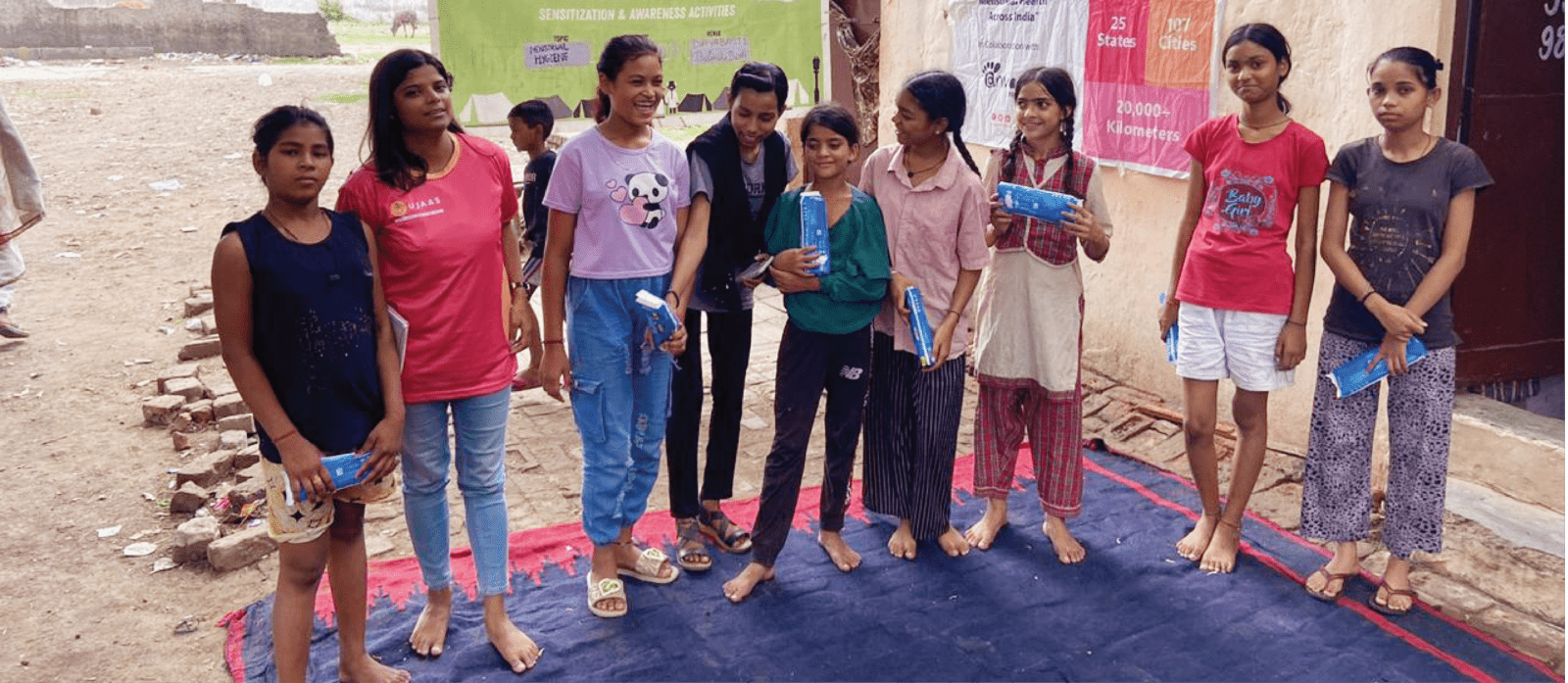Underprivileged Adolescent Girls Share Experiences of Their First Period, Paving the Way for a New Normal
Taboo
(noun)
something that is not acceptable to say, mention, or do: something that is taboo.
Wonder why/how a normal and vital biological function like menstruation should bear the tag of being a taboo subject?
Patriarchy, persistent social stigma, lack of awareness among women and young girls are some of the factors that have for time immemorial contributed in the branding of menstruation as a hush-hush subject. Having said that, all is not gloomy. Times are a changing.
Right from grassroots campaigns such as Uva Jagriti Sansthan’s “Chuppi todo, sayani bano” or leading FMCG brand, Whisper’s, Period Song, discourse all around is breaking the wall of shame surrounding menstruation, one move at a time.
Why does this subject demand such heightened discussion and widespread awareness you ask? With women’s participation in India’s workforce only increasing by the day, menstruation and it’s impact on the bodies and minds of young girls and women must be made common knowledge. With quotes from adolescent girls inhabiting urban slum communities, let’s understand the myriad experiences brought by menstruation and how open-minded communication can prove life-altering for them.
The First Brush
“Mera pehla period school mein aaya tha jab main 8th class mein thi. Humara pura group jo hai, usmein 9 dost hai, aur humne kabhi bhi ek dusre ko kam nahi samjha. Pure ke pure 9 jane washroom mere saath aaye the mujhe samjhane.”
Menstruation can catch a girl unawares. During an exam, during a game of football, or simply when at home. No matter the time or place it occurs, a girl seeks a strong support system at the time. For some it’s a group of close-knit friends who are geared to ease her through her first period. For many other girls the immediate support system is their mother, elder sister or even nani.
“Mujhe jab pehil baar periods aaye the tab main khel rahi thi aur meri kamar mein dard hua to maine nani ko bataya.”
A Snowball of Unawareness
Menstruation brings with it many firsts. The first unusual feeling of wearing a pad, the first bodily discomforts, and for some, the first blush with social restrictions.
“Mera pehla period rail gaadi mein hua tha jab main apne gaanv se apne bhai ke shaadi se wapas aa rahi thi. Mere pet mein dard ho raha tha aur main thoda sa pareshaan bhi hui thi.”
If left unanswered, this first feeling of exclusion can snowball into girls detaching themselves from their normal lives. This is particularly seen when girls as young as eight years old begin menstruating. The impact of this social exclusion can prove detrimental as is witnessed with 23 million girls dropping out of school every year after they start menstruating. Lack of awareness about menstrual hygiene management (MHM) also proves to be life threatening for girls.
Communication is Key
With both age-old dictums and lack of awareness prevailing in remote parts of India, girls are facing a double whammy of social ostracization and dropping out of the education system. Communication between family members, teachers, peers and the girls in question remains key. Openly discussing and normalizing menstruation not only provides a sense of safety, but also boosts confidence among girls to continue living their lives. Furthermore, it inculcates good hygiene practices among girls, which can reduce their chances of contracting infections or serious ailments.
RCI’s Approach
Through Child Activity Centers and widespread community outreach, team RCI addresses the subject of menstruation and MHM routinely and extensively. During peer-led group discussions among adolescent girls of the community, MHM comes up as a recurring issue. These then lead to larger social awareness campaigns, health camps and sanitary napkin distribution.
With the help of these open, support-led discussions, girls feel confident and secure in not only sharing and talking about their experiences and challenges but also in leading their lives with dignity and without any shame attached to their being.





